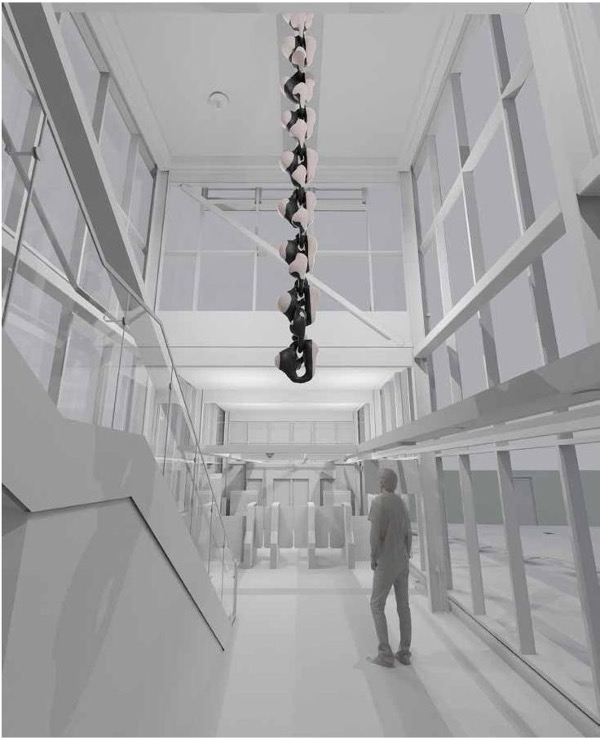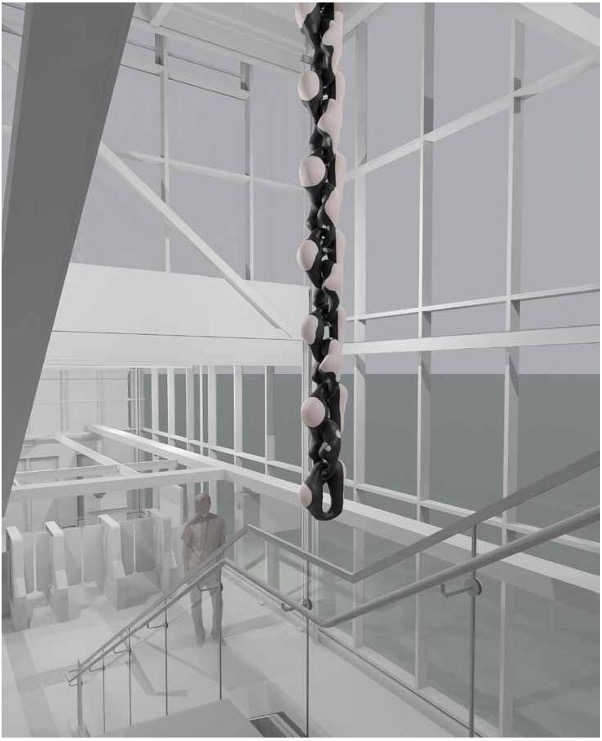Faire chanter les points d’appui
Valérie Blass
Anse-à-l'Orme Station
 This sculpture takes the form of a chain, an ambiguous figure that can represent both servitude and union.
This sculpture takes the form of a chain, an ambiguous figure that can represent both servitude and union.

 Portrait of Valérie Blass © Daphné Boxer
Portrait of Valérie Blass © Daphné Boxer
Artist: Valérie Blass
Valérie Blass is a Montréal-born sculptor trained at UQAM who experiments with a variety of techniques and materials. She is renowned for her hybrid sculptures, teeming with endless possibilities for interpretation. The human body, one of her favourite subjects, often merges with other forms, both living and inanimate. Her work has been exhibited in Canada, Europe and the United States.
About the work
The Anse-à-l’Orme Station is home to Faire chanter les points d’appui, a sculpture of captivating ambivalence.
This sculpture takes the form of a chain, an ambiguous figure that can represent both servitude and union. Other images can be associated with it: the entwining of two bodies, a spinal column, the cars of a train or a mechanical chain.
Carved from a three-dimensional reproduction of a tree found near the station, the work was designed shortly after the 2023 Canadian wildfires. It bears witness to our times and the ecological danger we are experiencing. The black lacquer covering every other link in the chain is reminiscent of charred wood, while the other half, made of white resin, is milky and translucent. These materials underscore the ambiguity of a work that is transparent and opaque, black and white. In the same spirit, the chain is fixed but articulated, juxtaposing stillness and movement.
The work evokes the human body through links reminiscent of bones, vertebrae or joints, yet these forms blend seamlessly with the structure’s mechanical structure and botanical inspiration.
“What is a good life in a bad world? In everyday language, we often say, ‘I have a body.’ This shows how skewed our perspective is—each of us is a body. Don’t turn your body into a project office, don’t leap from one variant to the universal. Be the link between disjointed bodies; purge yourself of the logic of these zombie categories.”
